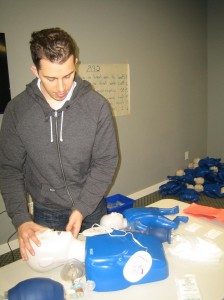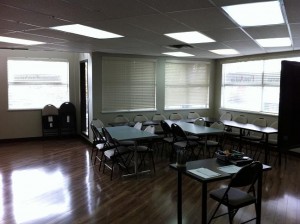
There are many differences when it comes to pediatric and adult health. Diseases that aren’t serious when adults get them could be quite fatal to children because of their weaker and immature immune systems. The same goes for cardiovascular disorders. Compared to adults, whose cardiac arrests usually stem from a pre-existing, lifestyle related cardiac problem, children get cardiac arrests because of respiratory failure.
When you enroll in our Pediatric Advanced Life Support (PALS) training course, you will learn the different causes of cardiac arrest in children as well as the different management techniques used in pediatric cases. Sign up today!
Asphyxial arrest: cardiac arrest in children
When children go experience respiratory failure, the high levels of stress on the heart can cause it to stop beating – causing cardiac arrest. However, because this condition is rooted in a respiratory problem, it is aptly termed ‘asphyxial arrest’ instead. Asphyxia is a medical term used to describe a severe lack of needed oxygen in the body, which can result in respiratory failure. The pathway to cardiac arrest begins with (1) systemic hypoxemia, (2) hypercapnea, (3) acidosis, (4) bradycardia, and (5) hypotension – ending eventually in a heart attack and cardiac arrest.
Congenital Heart Disease (CHD)
The most common type of cardiovascular disease to hit children is CHD – congenital heart disease. CHDs occur in approximately eight out of every 1000 live births. Congenital anomalies of the heart typically affect the heart valves and the septum (the wall that separates the left and right sides of the heart). If the child is lucky, the CHD is detected during birth or within the first few days after. However, most of the time signs and symptoms of a congenital heart problem only start to appear when the becomes more active – during toddlerhood. With surgery and cardiac management, these children can live normal lives.
Pediatric Advanced Life Support

Despite advancements in technology and medicine, cardiac arrest in children still exists and remains a problem since the mortality rates are still quite high. Pediatric Advanced Life Support (PALS) courses train allied health professionals in providing medical management for cardiac emergencies in children. The medical management is very broad, but the course teaches basics of cardiac emergency management. This involves teaching students about common cardiac medications, medication administration routes, use of defibrillators, and other skills.
PALS training runs over two days, with 14 hours in total class hours. It has a re-certification class available that runs for either 6 hours and 20 minutes or 8 hours and 20 minutes.
We also have other programs available, mainly categorized into basic, advanced, and re-certification classes. Listed below are all our other classes:
- Basic Heartsaver CPR/AED (public)
- Basic Heartsaver CPR/AED C (health care providers)
- Basic Life Support for health care providers
- Advanced Cardiac Life Support (allied health professionals)
- Basic Life Support for health care providers re-certification
- ACLS re-certification
